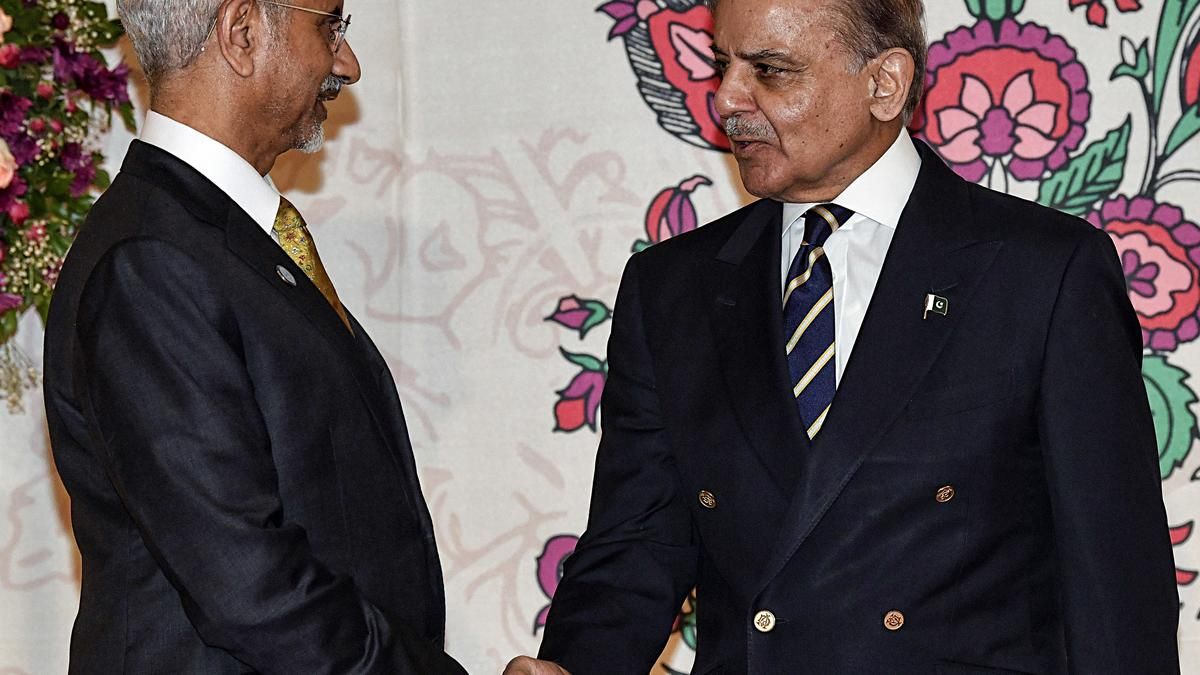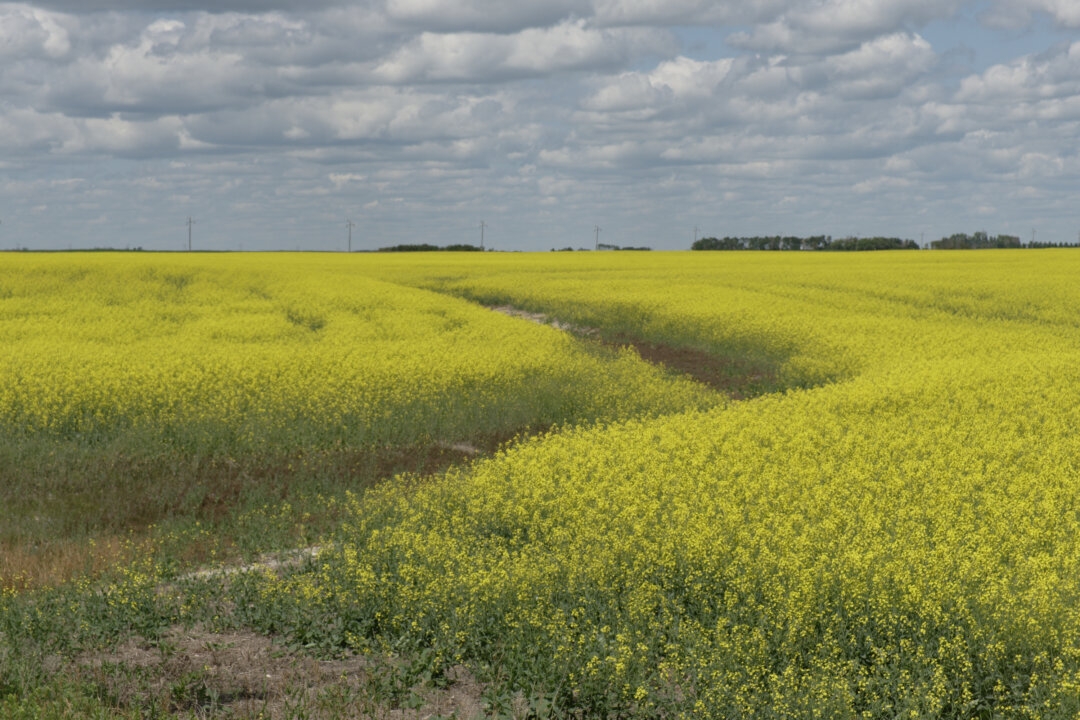
After a gap of nearly a decade, External Affairs Minister S Jaishankar travelled to Pakistan — a first by an external affairs minister in nine years — for the Shanghai Cooperation Organisation meet. The last time a foreign minister travelled to the neighbouring country was Sushma Swaraj in 2015. On his arrival, S Jaishankar met with Pakistan Prime Minister Shehbaz Sharif at the official dinner where the two shook hands and exchanged pleasantries, with some media reports stating that the interaction was less than 20 seconds long.
This meeting was reminiscent of a similar encounter last year on the sidelines of the SCO meeting in India’s Goa, which saw Jaishankar coldly greeting then-Pakistani Foreign Minister Bilawal Bhutto Zardari. Jaishankar followed up dinner with a morning walk on Wednesday (October 16) with his staff inside the premises of the Islamabad High Commission. He also put up a post on social media, showing him planting an Arjuna sapling in the presence of Indian diplomats there on the premises of the High Commission.
This interaction with the Pakistan leader comes amid frosty ties between the two nations. This was punctuated by Jaishankar who said earlier that his visit to the neighbouring country was only for the SCO summit and that no bilateral talks with Islamabad will be taking place. “Like with any neighbour, India would certainly like to have good relations with Pakistan, but that cannot happen by overlooking cross-border terrorism and indulging in wishful thinking,” he said.
Even Michael Kugelman, director of the Wilson Centre’s South Asia Institute told This Week in Asia that Jaishankar’s visit to Islamabad should be seen through the lens of the SCO and not of India-Pakistan relations. “He is clearly coming not to strengthen the relations with Pakistan but he feels SCO is sufficiently important and is worth coming to Pakistan for that very purpose.” As Jaishankar attends the important summit, here’s a look at what have been India-Pakistan ties in the past decade.
India-Pakistan political ties When PM Modi took the oath of office for the first time in 2014, he invited then- Pakistan Prime Minister Nawaz Sharif for his inauguration. And the image of them meeting had revived hopes that there would be a change in India-Pakistan ties. However, those hopes were dashed in February 2019 when a suicide bomber rammed his vehicle with a Central Reserve Police Force (CRPF) convoy in Jammu-Kashmir’s Pulwama region, killing 40 security personnel.
Indian investigations found that Pakistan-based terror group Jaish-e-Mohammad was behind the attack. In retaliation, India carried out a covert airstrike in Pakistan’s Balakot, targeting terror camps over there. Since then, ties only deteriorated further and reached an all-time low when India announced the abrogation of Article 370 in Jammu and Kashmir.
Pakistan condemned the move, expressing anxiety that India would change the demographic composition of the region. Since 2019, no Indian leader has held any bilateral meetings with their Pakistan counterpart with officials only meeting at Saarc, SCO meetings, or Indus Water Treaty discussions. Notably, there has also been a downgrade in diplomatic ties.
Ajay Bisaria, the Indian high commissioner to Pakistan at the time, was expelled from the country and returned to India on August 11, 2019. Islamabad also put on hold its appointment of a new high commissioner to New Delhi. Diplomatic ties have not recovered since, with the respective high commissions led by chargés d’affaires.
Trade ties at a standstill Deterioration in India-Pakistan ties has also affected trade between the two countries. Following the 2019 Pulwama attack, India revoked its Most Favoured Status for the neighbouring country, imposing a 200 per cent import duty on Pakistani products. After the revocation of Article 370 in Jammu and Kashmir, Islamabad suspended trade ties.
However, Islamabad couldn’t maintain the stance and lifted the ban on Indian medicines because of price hikes and the shortage of critical pharmaceuticals. In 2021, the former Imran Khan government in Pakistan tried to normalise trade relations with India, but the attempt never materialised. In April, however, Pakistan’s Foreign Minister indicated that there was a desire to reopen trade with New Delhi.
“What India did in 2019, the steps they took to amend the constitution and law, that was very painful,” said Dar. “But I think the business community of Pakistan is very keen” to restart direct trade. However, India has little incentive to restart trade ties.
Cultural losses In the years since 2014, the enmity between India and Pakistan, which share a close cultural history, has also spilled over to the cultural arena. In 2016, Pakistani actors were banned from working in India following the Uri attacks and in 2019, the AICWA (All Indian Cine Workers Association) announced a total ban on all Pakistani artists. Islamabad also responded with a ban on Indian films and television shows.
Moreover, Pakistan’s top court also ruled that no Indian content could be broadcast on local television either. But most analysts believe that this has only hurt Islamabad, with entertainment journalist Hassan Zaidi noting that 70 per cent of the Pakistani movie industry’s revenue is earned through Indian films. In 2023, the Bombay High Court ruled against a petition that aimed to ban Pakistani artists from working or performing in India.
Justices Sunil Shukre and Firdosh Pooniwalla categorically rejected the plea, saying such a move would be a backward step in fostering cultural harmony and unity, both within India and across its border with Pakistan. The court further observed that patriotism isn’t demonstrated by hostility towards foreign nationals, particularly those from neighbouring countries. However, person-to-person contact between the two nations continues via medical tourism and religious tourism.
Around 1.92 lakh devotees from India visited Gurdwara Darbar Sahib in Pakistan through the Kartarpur Sahib corridor in the past three years — 10,025 in 2021 to 86,097 in 2022 and further to 96,555 in 2023. Bowled out Cricket, which is considered a religion in both countries, has also been affected by the hostility between the two.
New Delhi has ruled out any bilateral India-Pakistan cricket ties, saying it wasn’t possible until the neighbouring country completely shunned terrorism and terror. Pakistan cricketers are also not allowed to participate in the Indian Premier League (IPL). The International Cricket Council is also looking at relocating the 2025 Champions Trophy , which was initially scheduled to be hosted by Pakistan.
This is due to uncertainties surrounding India’s participation in Pakistan. With inputs from agencies.










